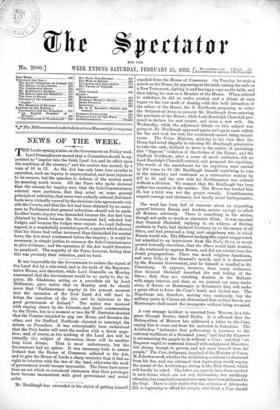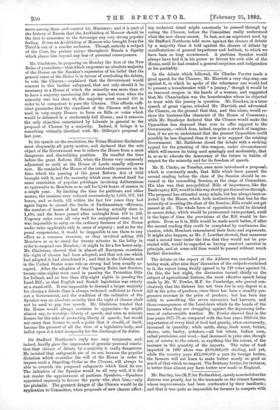A very strange incident is reported from Moscow, in a
tele- gram through Reuter, dated Berlin. It is affirmed that the Metropolitan of Moscow has addressed a letter to the Czar, urging him to come out from his seclusion in Gatschina. The Archbishop "intimates that poltroonery is injurious to the national traditions of a thousand years," and that the Emperor is accustoming the people to do without a Czar; and that " an Emperor ought to surround himself with enlightened Ministers, feel strong enough to govern, and not sever himself from his people." The Czar, indignant, inquired of the Minister of Grace, M. Pobodonoszeff, whether the Archbishop could not be dismissed from his See, and was informed that deprivation would require the assent of the Archbishops sitting in the Holy Synod, which will hardly be asked. The letter can scarcely have been couched in such terms, which are not only deliberately, but needlessly offensive, but some bold remonstrance may have been addressed to the Czar. There is little doubt that the seclusion of Alexander III. is beginning to offend his people, who think a Czar should move among them and control his Ministers; and it is part of the history of Russia that the Archbishop of Moscow should be the first to announce to the Sovereign any very strong popular feeling. It was an Archbishop of Moscow who brought Ivan the Terrible out of a similar seclusion. Though entirely a subject of the Czar, the prelate enjoys throughout Russia a dignity which places him beyond any fear of personal consequences.



































